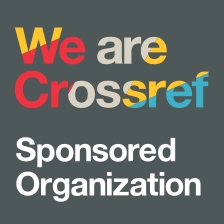UPAYA KONVERGENSI TELEVISI LOKAL MELALUI PROGRAM BERITA BERBAHASA LOKAL ( Kajian Terhadap Program Berita JTV : Pojok Kampung, Pojok Medhureh, dan Pojok Kulonan menggunakanCommunication Accomodation Theory-CAT )
Abstract
The phenomenon of the existence of the mass media through which the local television program for viewers to give plenty of options in accordance with the language and culture of each as well as a means of communication to understand the language of different cultures within a single province. JTV stands for Java Pos Television merpakan largest local television station in East Java Province and is the first local television in Indonesia which was established as a locally based broadcasters with the cultures of East Java are highly diverse. There are several languages used as languages of East Java community Suroboyoan wetanan inherent in citizens of Surabaya, Sidoarjo, Malang and Mojokerto. Further languages are attached to the Madurese community Pasuruan, Probolinggo, Jember and Lumajang and Mataraman Java language that is identical to the citizens of East Java Kulonan Blitar, Tulungagung, Kediri and Madiun.JTV accommodate the different variety of language through news programs' Corner Village (Suroboyoan language), corner Medhureh (Madura language), corner Kulonan (Javanese Kromo).
Authors who publish with this journal agree to the following terms:
- Copyright on any article is retained by the author(s).
- Author grant the journal, right of first publication with the work simultaneously licensed under a Creative Commons Attribution License that allows others to share the work with an acknowledgement of the work’s authorship and initial publication in this journal.
- Authors are able to enter into separate, additional contractual arrangements for the non-exclusive distribution of the journal’s published version of the work (e.g., post it to an institutional repository or publish it in a book), with an acknowledgement of its initial publication in this journal.
- Authors are permitted and encouraged to post their work online (e.g., in institutional repositories or on their website) prior to and during the submission process, as it can lead to productive exchanges, as well as earlier and greater citation of published work.
- The article and any associated published material is distributed under the Creative Commons Attribution-ShareAlike 4.0 International License









